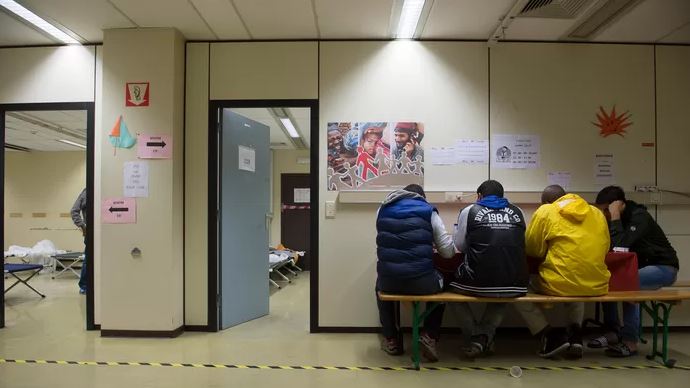The compulsory civic integration courses for new arrivals to the Brussels-Capital Region have been postponed for a fifth time, with several municipalities indicating they were not ready yet to introduce the obligation.
Every newcomer between 18 and 65 years old coming to Brussels from a country outside the EU is obliged to complete an integration course, according to an agreement that was approved in 2017. However, the implementation has been postponed time and again, with the issue now being raised in the Flemish Parliament.
"I am going to express myself in a very non-political way, but I am sick and tired of it," said Flemish Integration Minister Bart Somers in the Flemish Parliament on Wednesday, in response to a question about Brussels' progress from Flemish MP for the rightwing N-VA party, Annabel Tavernier.
"Creating opportunities for newcomers starts with an integration programme. There are no more arguments to abandon the weakest in our society," Somers said, adding that the measure in Brussels is taking so long is only to the newcomers' detriment.
Civic integration courses are enforced as a tool to ensure people coming from outside of Europe can "take an active part in society," with the presumption being those coming from outside of Europe diverge too much from European values and societies.
Many criticisms have been levelled at these programmes as they force an image of "other" onto non-Europeans, differentiating Europeans as "modern."
Related News
- No evidence of classes taught in Arabic in Brussels schools, Rousseau comments unfounded
- Flemish Socialist leader criticised for remarks about 'not feeling in Belgium' in Molenbeek
- Over 100 different nationalities residing in Molenbeek today
After approval in 2017, Brussels' compulsory civic integration was supposed to become a reality on 1 January 2020. Since then, the obligation has been repeatedly postponed. According to Brussels Minister Alain Maron, the planned introduction on 1 April this year was not achieved either, as several municipalities indicated that they were not ready.
One of the reasons for the delay is the legal underpinning of an IT system that should guarantee sufficient protection when exchanging personal data between the communities, Maron told local media last month. Another reason was that the local municipalities have been overrun with work related to the reception of Ukrainian refugees. Now, 1 June is the new target date set for the beginning of the courses.
In Flanders, compulsory integration – which includes Dutch or French language lessons and societal orientation, with courses on working, living, education and health – has existed for almost 20 years. Wallonia implemented a similar system in 2016.
No obstacle, but lever to a better life
On Wednesday, the new delay was the subject of heavy criticism from several MPs in the Flemish Parliament. For Tavernier, the Capital Region has run out of excuses. "Do people not realise that compulsory integration does not create obstacles, but is a path to self-reliance? It is a lever to richer opportunities in life."
Members of the Green (Groen) and Socialist (Vooruit) parties – both in the opposition in Flanders but in the majority in Brussels – also regret the additional delay and are emphasising that the mandatory integration should be introduced as soon as possible.
"The new postponement is embarrassing. It has to happen urgently," said Flemish MP for Groen, Stijn Bex. The Flemish Socialists "have had it as well," said Vooruit group leader Hannelore Goeman. "We really do not understand what Maron is still waiting for. Is he not able to do it or does he not want to?"
Somers urged Maron to "take up his responsibility."

